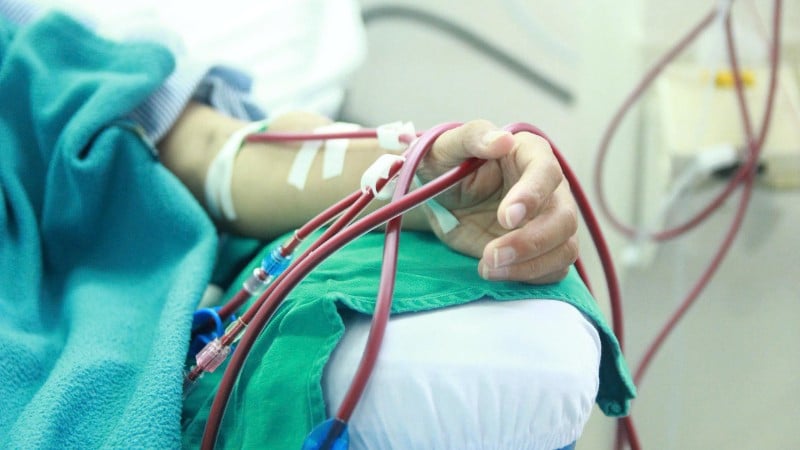
Kidney failure is getting younger
Three times a week, Ms. TN (Hanoi) goes to Duc Giang General Hospital for dialysis. It is a journey that is not only physically tiring but also financially burdensome. She discovered her illness about 10 years ago with the sign of fatigue when she went to the doctor.
"When I found out I was sick, I was shocked. I'm young and there were no warning signs. There were things I could do before, but now I can't, so my husband and everyone in the family helped me," Ms. N. said wearily.
According to the Department of Nephrology, Urology and Dialysis, Duc Giang General Hospital, in the first 9 months of 2025, there were 26 cases of end-stage chronic renal failure hospitalized, 17 of which were under 50 years old. Meanwhile, in the whole year of 2024, the number of patients under 50 years old diagnosed with end-stage chronic renal failure hospitalized was 12 (out of a total of 25 cases). This number shows that the disease associated with old age is getting younger.
Dr. Nguyen Van Tuyen, Head of the Department of Nephrology, Urology and Dialysis, Duc Giang General Hospital, said that many patients under 40 years old accidentally discovered kidney failure during routine health check-ups or recruitment procedures. This reflects the worrying reality of unhealthy lifestyles that are directly affecting young people.
Chronic kidney disease is a condition of kidney damage lasting more than 3 months, gradually reducing the function of blood filtration, excretion and regulation of the body's internal environment. When suffering from chronic kidney disease, the kidneys do not filter blood normally, causing excess water and substances to remain in the body and can cause health problems such as cardiovascular disease, circulatory overload, edema...
Chronic kidney disease has 5 stages, in which stages 1-2 often have no obvious symptoms, only when kidney function is severely reduced (stages 4-5) do symptoms appear dramatically.
Worryingly, the early signs of kidney failure are often vague, such as fatigue, mild swelling of the eyelids, foamy urine, etc. This makes many people subjective, only discovering the disease when it is in a late stage.
Chronic kidney disease cannot be reversed, but with regular screening, early detection can be well controlled and progression can be slowed, even maintaining stable kidney function for many years. Screening does not require complicated techniques or high costs. Blood and urine tests, blood pressure measurements and kidney ultrasound can already assess the risk of disease.
Habits that harm the kidneys
According to specialist doctor II Ho Tan Thong, Tam Anh General Clinic, District 7, Ho Chi Minh City, there are many causes leading to kidney failure, especially in young people. Therefore, you need to eliminate bad habits that put a burden on your kidneys.
A study has shown that prolonged sleep deprivation can lead to kidney failure in young people. Staying up until 3-4 am and not getting enough sleep disrupts the body's metabolic processes, causing damage to the kidneys and other organs. Reduced kidney function and waste removal leads to the accumulation of toxins in the body.
Not drinking enough water every day can damage your kidneys, especially if you are working hard or in hot weather. Water helps your kidneys remove waste, prevent kidney stones, and balance the microbiome in your urinary tract, helping them function better.
A bad habit among young people is holding urine frequently because it can negatively impact kidney health, potentially leading to infection, kidney damage and even kidney failure. When urine is not emptied regularly, it can back up into the kidneys, causing swelling, water retention (hydronephrosis) and increasing the risk of infections such as pyelonephritis. In addition, prolonged holding in urine can contribute to the formation of kidney stones and chronic kidney damage.
In diet, eating too much salt (too much salt) provides the body with a large amount of sodium, causing fluid imbalance, leading to high blood pressure and potentially damaging kidney tissue. Eating too much sugar can cause obesity - increasing the risk of developing high blood pressure and diabetes, two leading causes of chronic kidney disease.
Regularly eating processed foods also poses many risks. A 2022 study found that people who eat a lot of processed foods have a 24% higher risk of kidney disease than those who don’t. These foods are heavily processed, high in salt, spices, and packed with artificial additives, added sugar, refined carbs, and unhealthy fats, but low in fiber, protein, and essential nutrients.
Alcohol and drug abuse can damage the kidneys. In addition to filtering blood, the kidneys help maintain fluid balance in the body. Drinking alcohol can disrupt this balance by dehydrating the body. Drinking too much alcohol can also raise blood pressure – a leading cause of kidney disease – and damage the liver, forcing the kidneys to work harder to filter blood.
Smoking is not good for your lungs or heart. Smokers are more likely to have protein in their urine (proteinuria) – a sign of kidney damage.
Stress and uncontrolled stress responses can also lead to kidney damage. When the blood filtering units (glomeruli) are damaged, problems with blood circulation and blood vessels occur. High blood pressure and high blood sugar can put additional stress or strain on the kidneys.
Over-the-counter pain relievers, such as NSAIDs (nonsteroidal anti-inflammatory drugs) and analgesics, can provide temporary relief. But these drugs can also harm the kidneys (known as nephrotoxicity), and their effects are more pronounced in people with kidney disease.
Kidney failure not only threatens life but also forces the patient to be attached to a dialysis machine for life if he or she does not receive a kidney transplant. This entails an economic and psychological burden for the patient's family.
Dr. Tuyen emphasized that early detection and lifestyle changes are key to controlling the disease. Eating healthy, getting enough sleep, limiting alcohol, drinking plenty of water and having regular health check-ups will significantly reduce the risk of kidney failure.
Source: https://nhandan.vn/nguy-co-suy-than-tre-hoa-thoi-quen-xau-ban-can-tranh-post914722.html







![[Photo] General Secretary To Lam attends the opening of the 1st Government Party Congress](https://vphoto.vietnam.vn/thumb/1200x675/vietnam/resource/IMAGE/2025/10/13/1760321055249_ndo_br_cover-9284-jpg.webp)
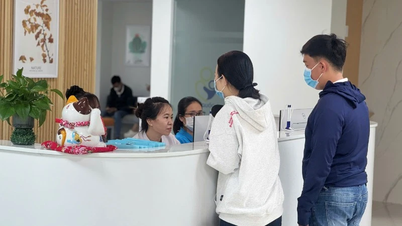
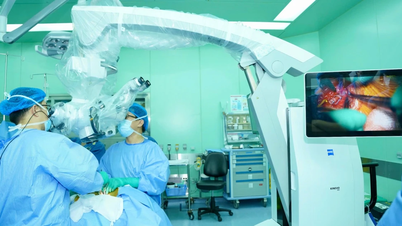
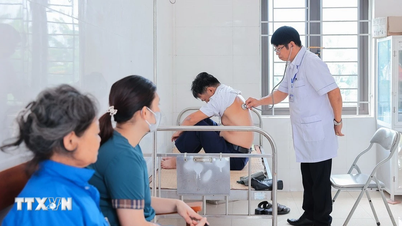



























































































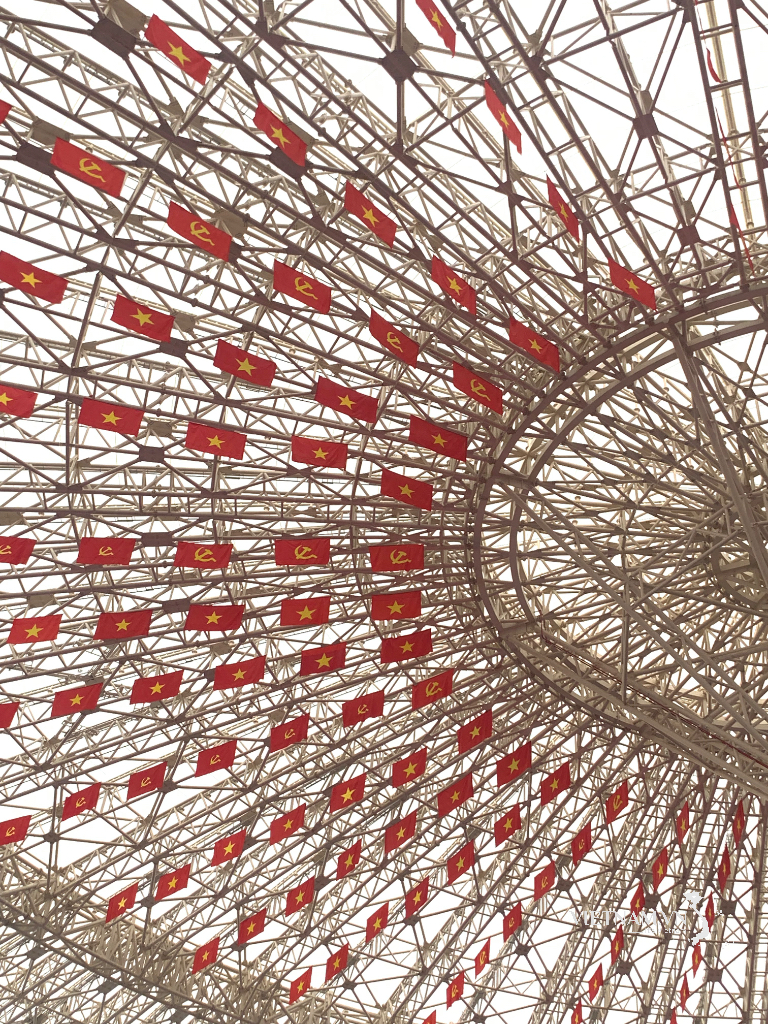


Comment (0)